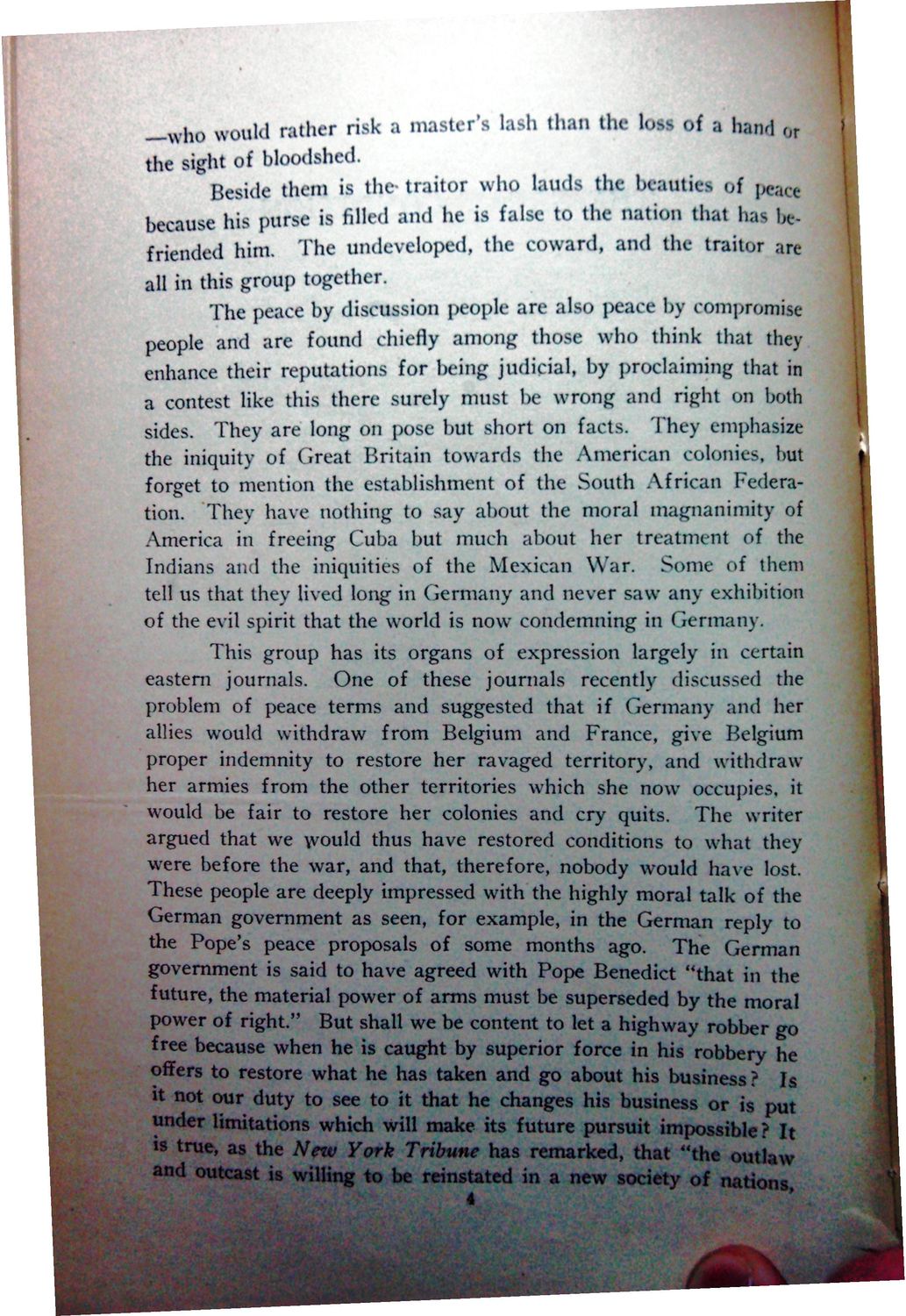| |
| |
Caption: War Publications - WWI Compilation 1923 - Article 13
This is a reduced-resolution page image for fast online browsing.

EXTRACTED TEXT FROM PAGE:
• master the sight of bloodshed. or Beside them is llu- u.iiim VVIKJ land- the beauties of peace because his purse is filled and he is false to the nation that has befriended him. The undeveloped, the coward all in this group together. also people and are found chiefly among those who think that they enhance their reputations for being judicial, by proclaiming that in a contest like this there surely must be wrong and right on both sides. They are long on pose but short on facts. They emphasize the iniquity of Great Britain towards the American colonics, but forget to mention the establishment of the South African Federation. They have nothing to say about the moral magnanimity of America in freeing Cuba but much about her treatment of the Indians and the iniquities of the Mexican War. Some of them tell us that they lived long in Germany and never saw any exhibition of the evil spirit that the world is now condemning in Germany. This group has its organs of expression largely in certain eastern journals. One of these journals recently discussed the problem of peace terms and suggested that if Germany and her allies would withdraw from Belgium and France, give Belgium proper indemnity to restore her ravaged territory, and withdraw her armies from the other territories which she now occupies, it would be fair to restore her colonies and cry quits. The writer argued that we would thus have restored conditions to what they were before the war, and that, therefore, nobody would have lost. These people are deeply impressed with the highly moral talk of the German government as seen, for example, in the German reply to posals The German government is said to have agreed with Pope Benedict "that in the arms power of right." robbe ie because when he is caught by superior force in his robbery ers to restore what he has taken and go about his business ? Is not our duty to see to it that he changes his business or is L „ der limitations which will make its future pursuit impossible ? It true, as the New York Tribune has remarked, that "the outlaw d outcast is willing to be reinstated in a new society of nations 4
| |